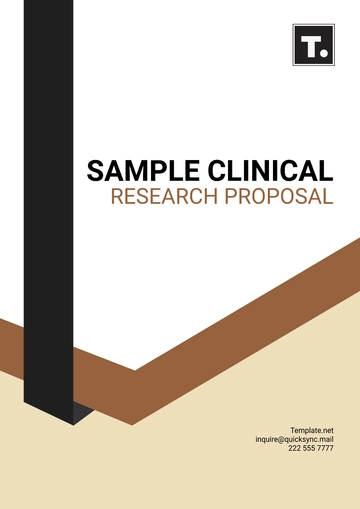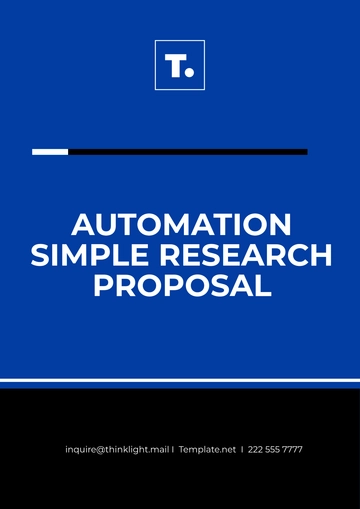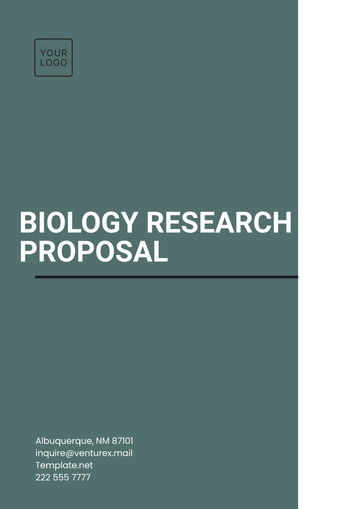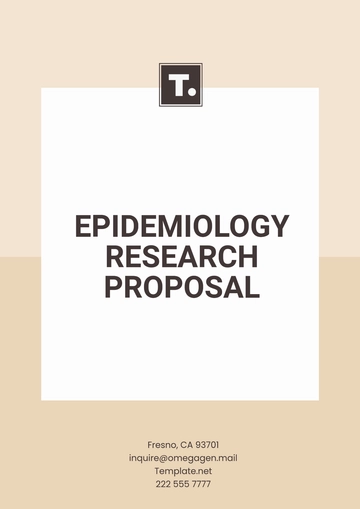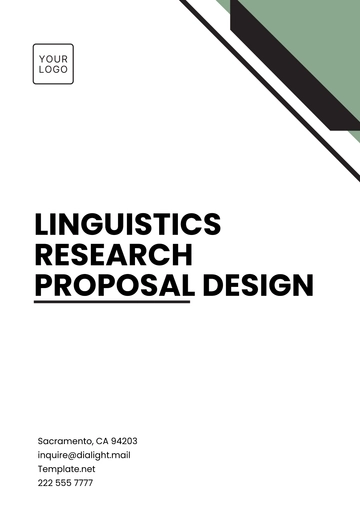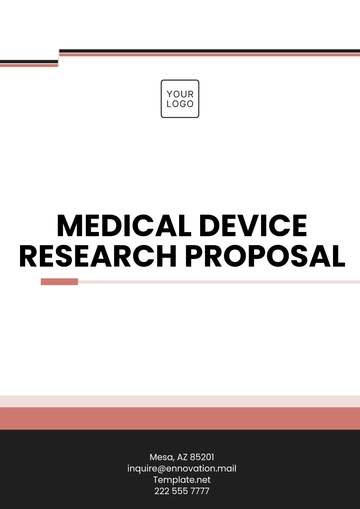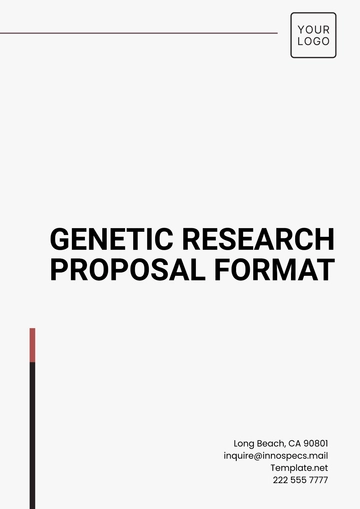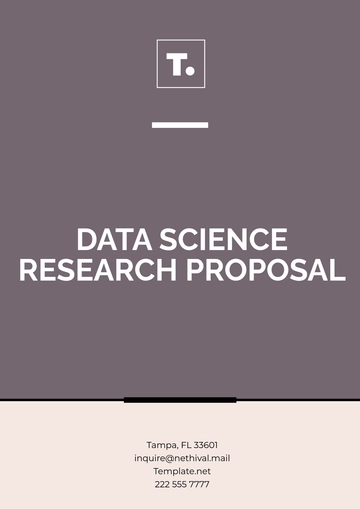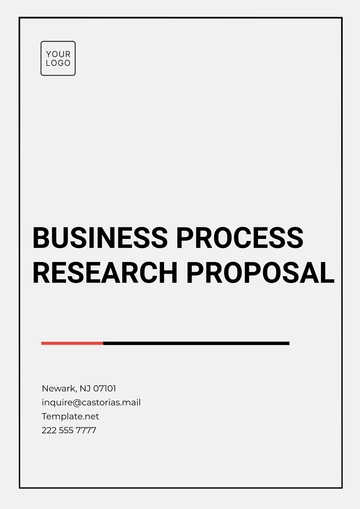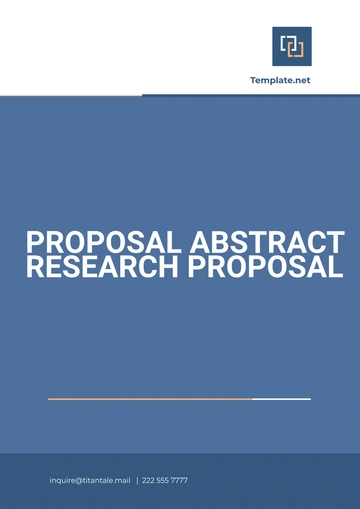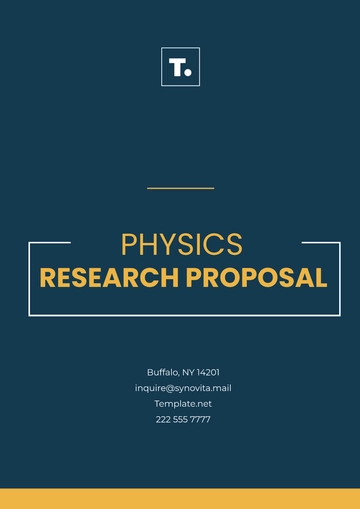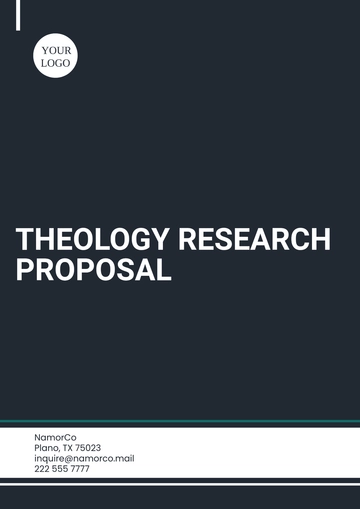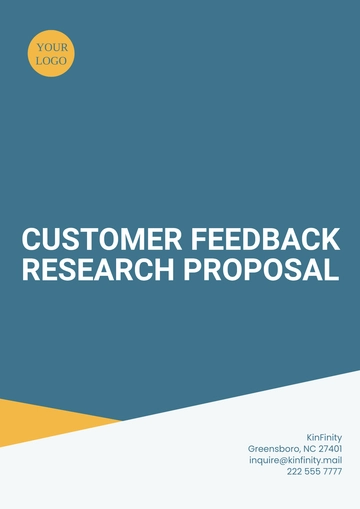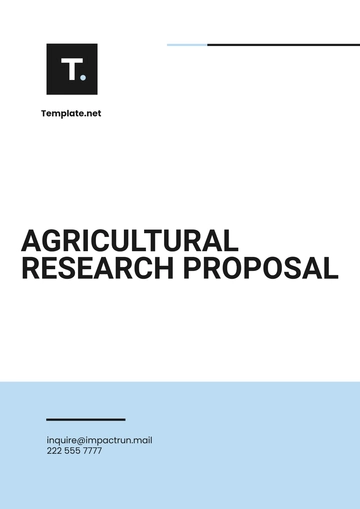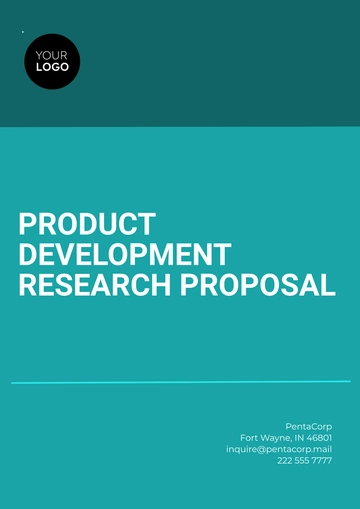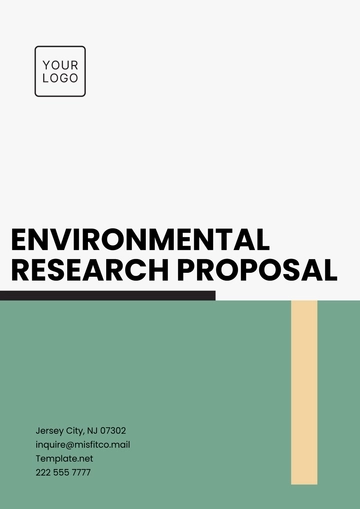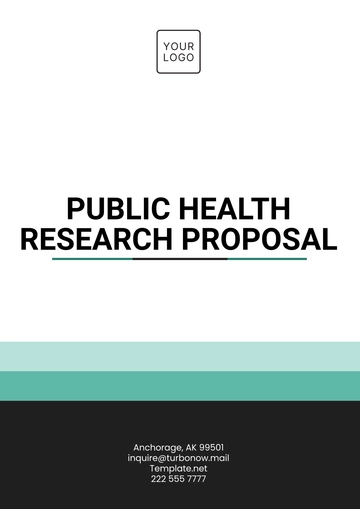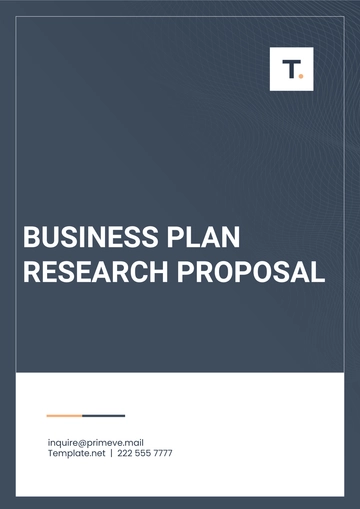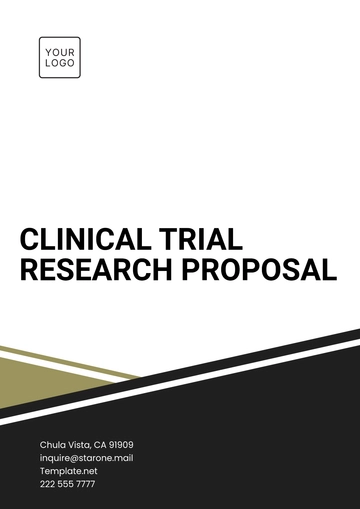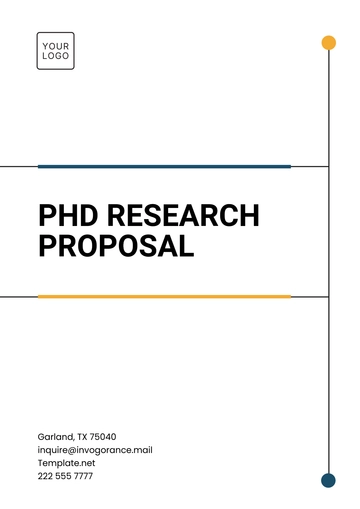Free Research Proposal Report
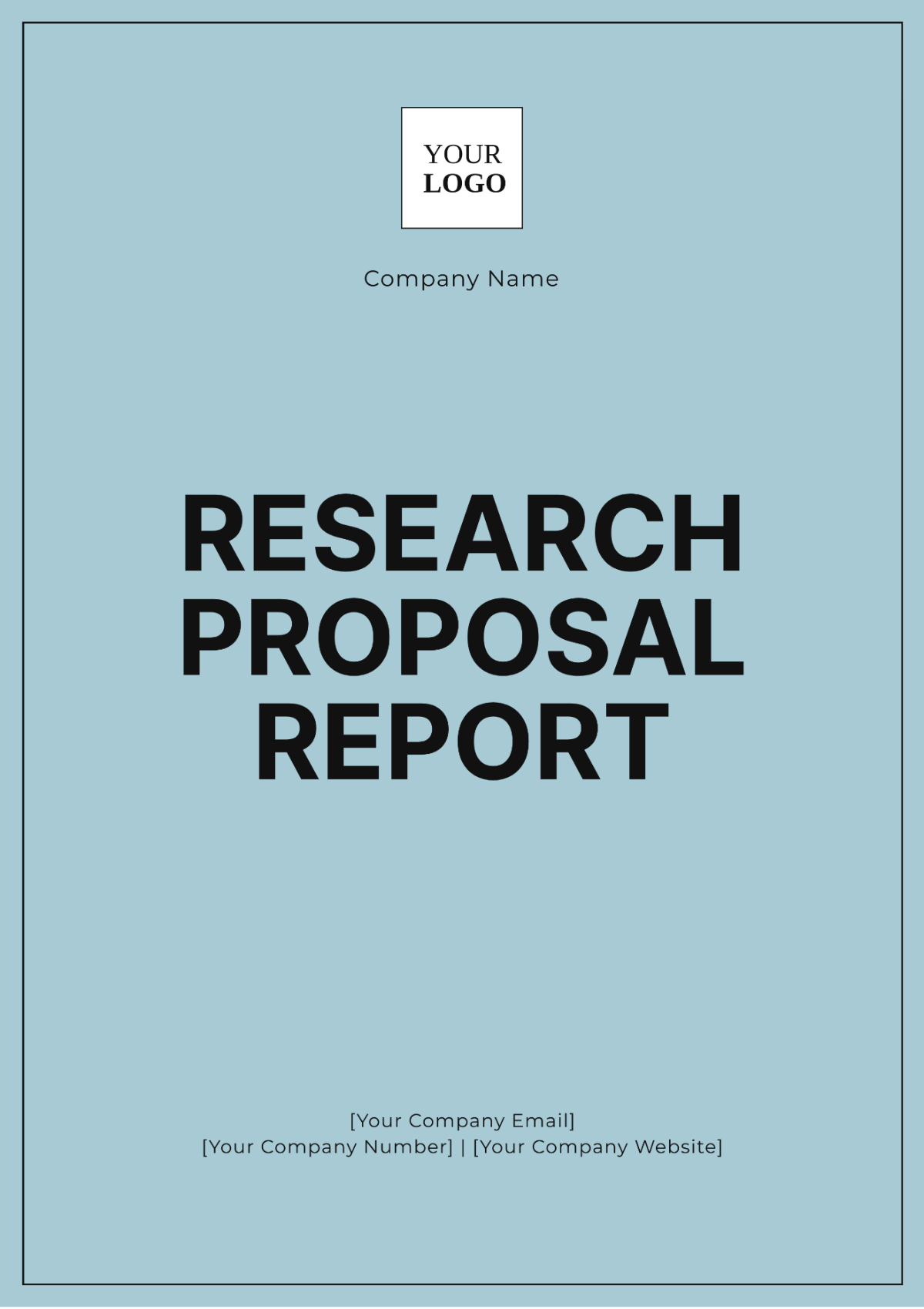
1. Introduction
This research proposal seeks to explore the impact of technological advancements on workplace productivity. By investigating this relationship, we aim to provide valuable insights that can guide organizations in optimizing their technological strategies.
1.1 Significance of the Study
The integration of advanced technologies into the workplace has become ubiquitous, yet its effects on productivity are not fully understood. This study is significant as it will shed light on how modern technological tools influence efficiency across various business sectors. Understanding these dynamics is essential for organizations striving to harness technology effectively and maintain a competitive edge.
1.2 Research Objectives
Objective Number | Objective Description |
|---|---|
1 | To analyze the correlation between the adoption of new technologies and improvements in employee productivity. |
2 | To identify and evaluate factors that enhance or hinder productivity in technologically driven environments. |
3 | To develop actionable recommendations for organizations to optimize productivity through strategic technology use. |
1.3 Hypotheses
Hypothesis | Description |
|---|---|
H1 | The adoption of advanced technologies positively correlates with increased employee productivity. |
H2 | Training programs focused on new technologies enhance employees' efficiency and work quality. |
H3 | Excessive reliance on technology may negatively impact employees' critical thinking and problem-solving skills. |
2. Literature Review
This section reviews existing research on the topic, highlighting key findings, gaps in the literature, and relevant theoretical frameworks.
2.1 Theoretical Framework
The study is grounded in the Technology Acceptance Model (TAM), which examines how individuals come to accept and use technology. TAM provides a foundational understanding of user adoption and the perceived usefulness and ease of use of technology.
2.2 Key Studies and Findings
Study Focus | Key Findings |
|---|---|
Impact on Productivity | Technology adoption is positively correlated with improved communication, task management, and overall efficiency. |
Training and Productivity | Employees with comprehensive training on new technologies exhibit higher productivity and work quality. |
Negative Impacts | Technology can diminish attention spans and reduce creative thinking. |
2.3 Research Gaps
Research Gap | Description |
|---|---|
Long-Term Effects | There is a lack of research on the sustained impacts of ongoing technological changes on employee productivity. |
Organizational Culture | There is insufficient focus on how organizational culture influences technology adoption and productivity. |
Critical Thinking | There is a need for further study on balancing technology use with critical thinking and problem-solving skills. |
3. Methodology
This section describes the research design, data collection methods, and analysis techniques that will be utilized.
3.1 Research Design
The study will employ a mixed-methods approach, integrating quantitative surveys and qualitative interviews to provide a comprehensive analysis of the research questions.
3.2 Data Collection Methods
Data Collection Method | Description |
|---|---|
Surveys | Structured questionnaires distributed to employees across industries to measure productivity and technology usage. |
Interviews | In-depth interviews with managers and employees to gain qualitative insights into their technology experiences. |
3.3 Data Analysis Techniques
Data Type | Analysis Technique |
|---|---|
Quantitative | Descriptive Statistics, Correlation Analysis |
Qualitative | Thematic Analysis, Content Analysis |
4. Expected Outcomes
This section outlines the anticipated contributions and implications of the research findings.
4.1 Contributions to Knowledge
The study is expected to enhance understanding of how technological advancements impact workplace productivity and identify best practices for effective technology integration.
4.2 Practical Implications
Implication | Description |
|---|---|
Strategic Development | findings will assist organizations in developing strategies for effective technology integration. |
Policy Making | Insights will inform policies related to employee training and development, fostering a more productive workplace. |
5. Conclusion
The conclusion will summarize the key elements of the research proposal, emphasize the study's significance, and highlight the expected impact of the findings.
6. References
A comprehensive list of references cited will be included, adhering to relevant academic standards and citation guidelines.
- 100% Customizable, free editor
- Access 1 Million+ Templates, photo’s & graphics
- Download or share as a template
- Click and replace photos, graphics, text, backgrounds
- Resize, crop, AI write & more
- Access advanced editor
Elevate your research presentations with the Research Proposal Report Template offered by Template.net. This customizable and downloadable template is designed to streamline your report creation process. Its printable format ensures convenience, while the editable features in our AI Editor Tool allow for effortless adjustments. Perfect for researchers aiming to present their proposals with clarity and professionalism.
You may also like
- Business Proposal
- Research Proposal
- Proposal Request
- Project Proposal
- Grant Proposal
- Photography Proposal
- Job Proposal
- Budget Proposal
- Marketing Proposal
- Branding Proposal
- Advertising Proposal
- Sales Proposal
- Startup Proposal
- Event Proposal
- Creative Proposal
- Restaurant Proposal
- Blank Proposal
- One Page Proposal
- Proposal Report
- IT Proposal
- Non Profit Proposal
- Training Proposal
- Construction Proposal
- School Proposal
- Cleaning Proposal
- Contract Proposal
- HR Proposal
- Travel Agency Proposal
- Small Business Proposal
- Investment Proposal
- Bid Proposal
- Retail Business Proposal
- Sponsorship Proposal
- Academic Proposal
- Partnership Proposal
- Work Proposal
- Agency Proposal
- University Proposal
- Accounting Proposal
- Real Estate Proposal
- Hotel Proposal
- Product Proposal
- Advertising Agency Proposal
- Development Proposal
- Loan Proposal
- Website Proposal
- Nursing Home Proposal
- Financial Proposal
- Salon Proposal
- Freelancer Proposal
- Funding Proposal
- Work from Home Proposal
- Company Proposal
- Consulting Proposal
- Educational Proposal
- Construction Bid Proposal
- Interior Design Proposal
- New Product Proposal
- Sports Proposal
- Corporate Proposal
- Food Proposal
- Property Proposal
- Maintenance Proposal
- Purchase Proposal
- Rental Proposal
- Recruitment Proposal
- Social Media Proposal
- Travel Proposal
- Trip Proposal
- Software Proposal
- Conference Proposal
- Graphic Design Proposal
- Law Firm Proposal
- Medical Proposal
- Music Proposal
- Pricing Proposal
- SEO Proposal
- Strategy Proposal
- Technical Proposal
- Coaching Proposal
- Ecommerce Proposal
- Fundraising Proposal
- Landscaping Proposal
- Charity Proposal
- Contractor Proposal
- Exhibition Proposal
- Art Proposal
- Mobile Proposal
- Equipment Proposal
- Student Proposal
- Engineering Proposal
- Business Proposal
